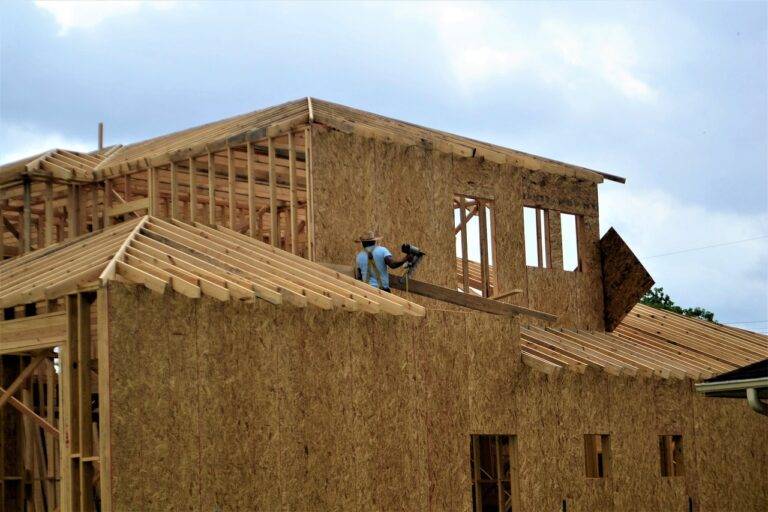The Role of Smart HVAC Systems in Energy Savings
laser book 247 login registration number, lotusbook9 com, 11xplay: The Role of Smart HVAC Systems in Energy Savings
Hey there, fellow energy-savers! Today, I want to delve into the fascinating world of smart HVAC systems and how they can help you cut down on your energy bills. With the rise of smart technology, it’s no surprise that our heating, ventilation, and air conditioning systems are getting a much-needed upgrade.
Smart HVAC systems are not just about convenience and comfort; they also play a significant role in reducing energy consumption and promoting sustainability. By optimizing your HVAC system with smart features and advanced technology, you can make your home more energy-efficient while also saving money in the long run.
Let’s explore the various ways in which smart HVAC systems contribute to energy savings:
1. Smart Thermostats
One of the most significant advancements in HVAC technology is the introduction of smart thermostats. These devices allow you to control the temperature of your home remotely and create personalized heating and cooling schedules based on your preferences. By automatically adjusting the temperature when you’re away or asleep, smart thermostats can help you reduce energy usage and lower your utility bills.
2. Energy Monitoring
Many smart HVAC systems come equipped with energy monitoring capabilities that allow you to track your energy usage in real-time. By analyzing this data, you can identify patterns of energy waste and make informed decisions to optimize your system for maximum efficiency. With this valuable insight, you can take proactive steps to reduce your energy consumption and lower your carbon footprint.
3. Zoning Control
Smart HVAC systems offer zoning control features that allow you to divide your home into separate heating and cooling zones. By adjusting the temperature in specific areas of your home independently, you can avoid wasteful energy expenditure and focus only on the areas that require heating or cooling. This targeted approach can result in significant energy savings and improve the overall comfort of your living space.
4. Adaptive Learning
Some smart HVAC systems are equipped with adaptive learning technology that can analyze your behavior and preferences to optimize energy usage. By learning your daily routine and adjusting the temperature settings accordingly, these systems can minimize energy waste and ensure that your home remains comfortable at all times. This intelligent feature can lead to substantial energy savings without sacrificing comfort.
5. Air Quality Monitoring
In addition to temperature control, smart HVAC systems can also monitor and improve indoor air quality. By detecting pollutants, allergens, and other harmful substances in the air, these systems can adjust ventilation rates and filtration levels to ensure a healthy living environment. By maintaining optimal air quality, you can enhance the efficiency of your HVAC system and reduce energy consumption in the long term.
6. Remote Access
One of the most convenient features of smart HVAC systems is remote access, which allows you to control your system from anywhere using a mobile app or web interface. Whether you’re at work, on vacation, or simply relaxing at home, you can adjust the temperature settings, monitor energy usage, and receive alerts and notifications in real-time. This level of flexibility and control can help you optimize your energy savings and ensure that your system operates efficiently at all times.
FAQs
Q: Are smart HVAC systems expensive to install?
A: While smart HVAC systems may have a higher upfront cost compared to traditional systems, they can result in long-term savings on energy bills. Additionally, many utility companies offer rebates and incentives for installing energy-efficient systems, making it more affordable for homeowners.
Q: Can I install a smart thermostat on my own?
A: Many smart thermostats are designed for easy installation and can be set up by homeowners without professional help. However, if you’re unsure about the installation process or want to ensure that the system functions correctly, it’s always a good idea to consult a professional HVAC technician.
Q: How much energy can I save with a smart HVAC system?
A: The amount of energy savings you can achieve with a smart HVAC system depends on various factors, such as your home size, climate, usage patterns, and system efficiency. On average, homeowners can expect to save anywhere from 10% to 30% on their energy bills by upgrading to a smart HVAC system.
Q: Are smart HVAC systems compatible with existing HVAC equipment?
A: Most smart HVAC systems are designed to be compatible with a wide range of HVAC equipment, including furnaces, air conditioners, and heat pumps. Before purchasing a smart system, it’s essential to check its compatibility with your existing equipment or consult with a professional HVAC technician for guidance.
In conclusion, smart HVAC systems are a game-changer when it comes to energy savings and sustainability. By leveraging advanced technology and smart features, you can optimize your HVAC system, reduce energy consumption, and lower your utility bills significantly. Investing in a smart HVAC system is not only a smart choice for your wallet but also for the environment. So why wait? Start saving energy and money today with a smart HVAC system!
Stay cool and energy-efficient!







